It’s no exaggeration to say I watched more movies this decade than in the previous two combined, so settling on this list was pretty grueling. But I narrowed it down to 50 movies that meant a lot to me. That means some more challenging efforts narrowly missed the cut, but these had the biggest impact.
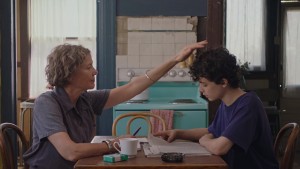
20th Century Women (2016, Mike Mills)
A movie that feels like the past and present happening all at once, Mike Mills’ quietly radical vision of a modern American family at a crossroads is an enchanting story of the joys and disappointments of life.
Further Viewing: Beginners (2011)
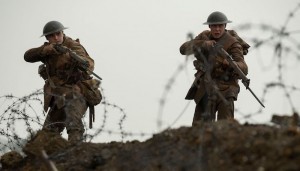
1917 (2019, Sam Mendes)
Enthralling and devastating from first frame to last, Sam Mendes’ brutal World War I adventure is more than just a gimmick. Roger Deakins’ breathtaking cinematography gives it an edge, but there’s a genuine emotional component as well.
Further Viewing: Skyfall (2012)
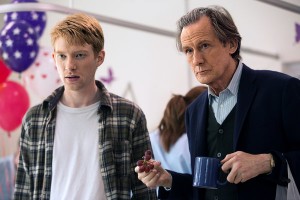
About Time (2013, Richard Curtis)
The best romantic comedy of the decade, Richard Curtis’ final film as a director is brimming with life, featuring Domhnall Gleeson in his breakout role and one of many great turns from Rachel McAdams. But it wouldn’t be Curtis project without some serious tugging on your heartstrings, and I can’t help but tear up every time I watch it.
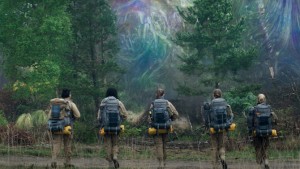
Annihilation (2018, Alex Garland)
A brilliant adaptation of Jeff VanDerMeer’s essentially unfilmable sci-fi novel, this is much more a story about mankind’s self-destructive nature. Yet it still has one of the most terrifying scenes of any movie this decade.
Further Viewing: Ex Machina (2015)
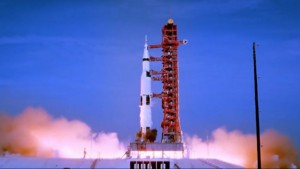
Apollo 11 (2019, Todd Douglas Miller)
A true feat of craftsmanship, this stellar documentary condenses tens of thousands of hours of raw footage from NASA into a tidy, inspiring testament to mankind’s scientific achievement.
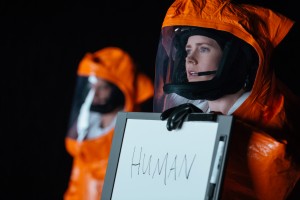
Arrival (2016, Denis Villeneuve)
The best of the many brainy sci-fi films we got this decade, its themes have only gotten more resonant, as an inability to communicate will all but ensure our destruction. Many films used Max Richter’s beautiful, haunting “On the Nature of Daylight,” but no film used it more powerfully.
Further Viewing: Prisoners (2013), Sicario (2015), Blade Runner 2049 (2017)
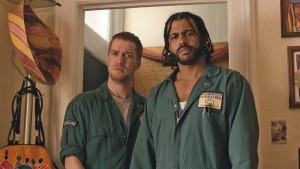
Blindspotting (2018, Carlos López Estrada)
This razor-sharp debut from its main trio didn’t leave any issue unchecked as it barreled through them with righteous fury. Racism, police brutality, mass incarceration, gentrification, sexism and prejudice all get addressed with in turn. But did I mention how entertaining and funny this movie is? It walks a tonal tightrope, then does it blindfolded just to make sure you were paying attention.
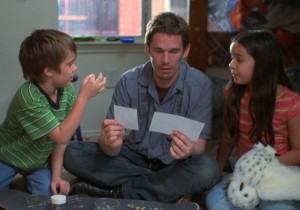
Boyhood (2014, Richard Linklater)
Aside from the master Martin Scorsese, I’m not sure any director had a better decade than Linklater. Almost any of his other movies could have made this list – the delightful true-crime story of Bernie, the brutal yet hopeful trilogy capper Before Midnight, the ultimate hang-out movie Wants Some, and the powerful anti-war dramedy Last Flag Flying – all are wildly different examples of a director in the zone. But I have to go with his most astonishing directorial achievement: Boyhood, which took 14 years to film, a couple weeks at a time. Ethan Hawke and Patricia Arquette are tremendous as his divorced parents, but young Ellar Coltrane had to be phenomenal to hold it together, and he was.
Further Viewing: Bernie (2012), Before Midnight (2013), Everybody Wants Some (2016), Last Flag Flying (2017)
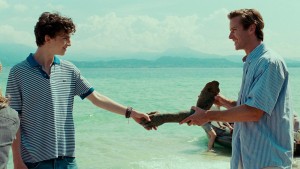
Call Me by Your Name (2017, Luca Guadagnino)
An intoxicating portrayal of a summer fling that forever changes at least one half of the couple. It’s beautiful of course, but its final stretch – including that incredible monologue from Michael Stuhlbarg and the stunning last shot – gives the film its power.
Further Viewing: Suspiria (2018)
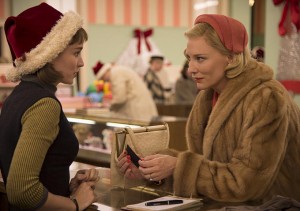
Carol (2015, Todd Haynes)
And speaking of lush films about brief love affairs, it’s hard to think of a more bittersweet Christmas movie than this grand Patricia Highsmith adaptation. It’s hard to think of any living human being who wouldn’t be immediately enraptured with Cate Blanchett’s titular object of affection. Rooney Mara gives her best performance to date as the Therese, the “girl flung out of space” and into Carol’s orbit. But Phyllis Nagy’s script refuses to turn the men in these women’s lives into easy villains. And unlike decades of queer romances on page and screen, offers a glimpse of hope.
Further Viewing: Dark Waters (2019)
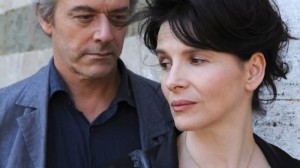
Certified Copy (2011, Abbas Kiarostami)
Who are this pair? Are they old flames? Longtime friends? Mere strangers? The lines blur together in this gorgeous travelogue, as they walk and talk around an Italian village. A shining example of the journey being more important than the destination.
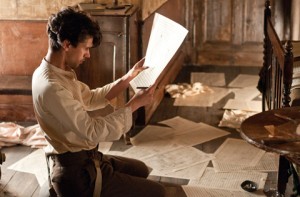
Cloud Atlas (2012, Tom Tykwer & the Wachowskis)
Yes, this movie has a gigantic flaw, but that failure is more interesting than many merely adequate films. In using the same cast for every role, Tom Tykwer and the Wachowskis run into some limitations. (For one, Tom Hanks is not convincing in the slightest as a British gangster.) And that’s before we get into the complicated nature of having the likes of Hugh Grant play an indigenous person and Jim Sturgess playing a man of Korean descent. But taken as a whole, this is an astonishing, ambitious movie about good and evil throughout time, and the power of kindness against greed.
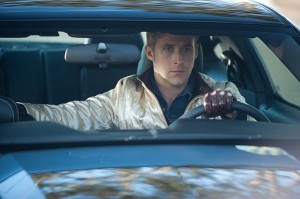
Drive (2011, Nicolas Winding Refn)
Even though it’s been mocked endlessly and Refn has yet to live up to the promise of this film, there still hasn’t been anything quite as cool on our movie screens ever since. Gosling is in Apex Stoic Mode as the Driver, drawn to protect his neighbor (Carey Mulligan) after a heist gone wrong. Albert Brooks is tremendous as the heavy, and the film’s style remains second to none.
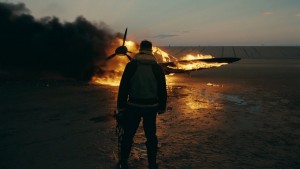
Dunkirk (2017, Christopher Nolan)
A feat of editing as much as directing, Nolan’s World War II triptych is harrowing and inspiring. It’s a rousing war movie that never relies on jingoism, focusing on the ordinary men who answered the call of duty.
Further Viewing: Inception (2010), Interstellar (2014)
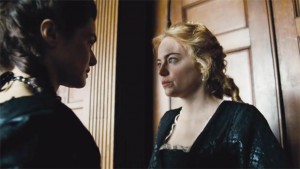
The Favourite (2018, Yorgos Lanthimos)
The bizarre Greek director finally hits the mainstream, but without losing any of his quirks. This explicit bit of historical fiction is howlingly funny, and features a trio of women doing some of their very best work (including an against-type performance from Emma Stone). But this is Olivia Colman’s show, and she has the Oscar to prove it.
Further Viewing: Dogtooth (2010), The Lobster (2016)
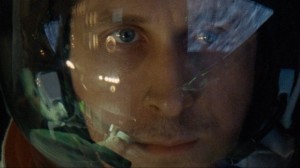
First Man (2018, Damien Chazelle)
When you receive two Best Picture nominations and a Best Director Oscar before you turn 30, where do you go? To the skies, and deliver a gripping drama about the Space Race that’s more about grief than anything else. Morons tried to get a boycott going before the film even launched, with bullshit conspiracy theories about anti-American sentiment because there’s no scene of the U.S. flag being planted on the moon. What happens instead is far more important than claiming a hunk of space rock in the name of a country.
Further Viewing: Whiplash (2014), La La Land (2016)
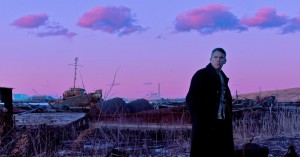
First Reformed (2018, Paul Schrader)
The rare film to tackle the incompatibility of Christianity and capitalism, Schrader’s flip of Taxi Driver during the climate crisis is his best, most urgent work in decades. Ethan Hawke gives his best performance to date as a conflicted priest whose lost feelings take him down a dark path. This is a challenging work, to be sure, but it’s also one of the most vital.
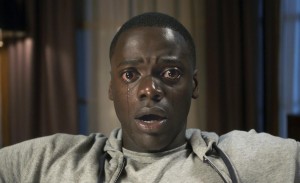
Get Out (2017, Jordan Peele)
One of the most confident directorial debuts of all-time, funnyman Jordan Peele delivered an instant horror classic, while never forgetting to punctuate the terror with laughs. Daniel Kaluuya is magnificent as the black man meeting his white girlfriend’s seemingly picture-perfect family for the first time, and its ending produced a collective knot in the audience’s stomach, making for one of the best theatrical experiences ever.
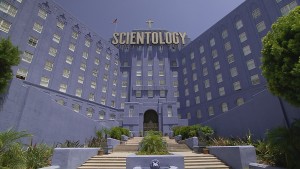
Going Clear: Scientology and the Prison of Belief (2015, Alex Gibney)
Gibney is the hardest working man in non-fiction, making more than two dozen features, TV episodes and shorts this decade. But his most harrowing is this controversial look at one of the most powerful cults in the world. Working from Lawrence Wright’s book, he presents a clear history of founder L. Ron Hubbard, his group’s tactics over the years, and the increasingly horrifying work they’ve done under current president David Miscavige. You’ll never look at Tom Cruise the same way.
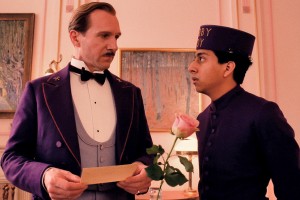
The Grand Budapest Hotel (2014, Wes Anderson)
Anderson’s strongest film since The Royal Tenenbaums feels like him at the peak of his powers. With meticulously crafted sets, ever-changing aspect ratios and a sprawling cast, he tells the story of the friendship between concierge Gustav H. (a blisteringly funny Ralph Fiennes) and his lobby boy (Tony Revolori), set against the backdrop of a Europe slowly succumbing to fascism. The laughs are frequent, but the stakes always feel real.
Further Viewing: Moonrise Kingdom (2012), Isle of Dogs (2018)
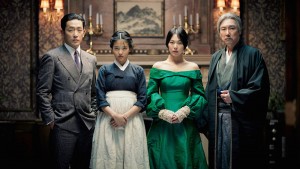
The Handmaiden (2016, Park Chan-wook)
I refer you this oft-used GIF of Vince McMahon for my reaction to the many twists and turns of this stylish and sexy mystery. Chan-wook moves the Victorian-era Fingersmith to Korea under Japanese rule, delivering one of the most compelling and erotic films of the decade.
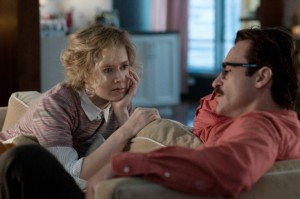
Her (2013, Spike Jonze)
Not quite dystopian, but certainly not utopian, Jonze gives us a unique vision of the future. Yes, people are falling in love with their operating systems, but there are no fascist overlords, and at least the people in Theodore’s orbit are genuinely concerned for his well-being. It’s a lovely film about a man seriously detached from the world around him.
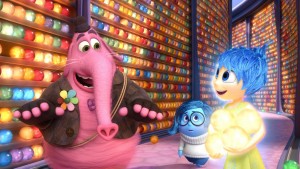
Inside Out (2015, Pete Docter & Ronnie del Carmen)
To me, no other animated film came close to reaching the emotional and storytelling highs of this Pixar effort. You will laugh. You will cry. Those are both full-on guarantees. It’s one of the most universal films I’ve ever seen, able to touch all but the most cold-hearted.
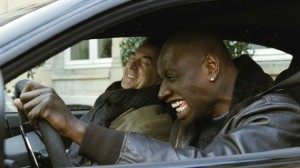
The Intouchables (2012, Olivier Nakache & Éric Toledano)
Before it got an Americanized remake, this French film was one of the biggest international hits of the decade. There are cynics who don’t buy the friendship between this poor black man (Omar Sy) and this obscenely wealthy white man (François Cluzet), but if you do buy in, you’ll be treated to one of the most joyful and uplifting films you’re likely to see in any language.